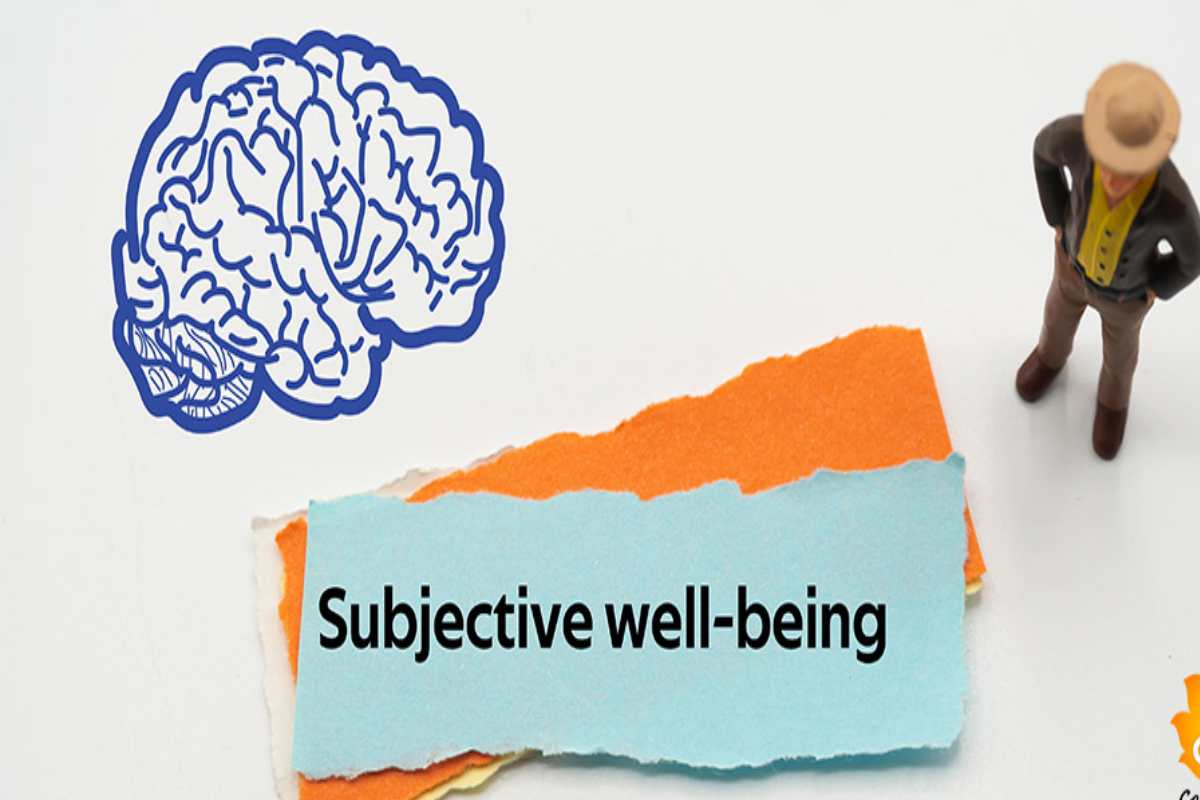Table of Contents
Subjective Well-Being
Subjective well-being can be defined as the evaluative position people have about their well-being as they live it, that is, how they perceive it. Personal well-being has two components: emotional, related to the level of happiness, which brings practical burdens, and cognitive, which refers to evaluations of life satisfaction. It is important to note that both components (affective and mental) are present in subjective well-being. However, the affective element predominates in happiness and the cognitive part of life satisfaction.
Ed Diener is one of the principal authors who has promoted the study of well-being in all dimensions. He has laid the foundation for the construct of subjective well-being, both theoretical and methodological, for its measurement and the factors determining well-being.
What is Subjective Well-Being?
This research aims to identify elements that define Subjective Well-being, made up of happiness and satisfaction with life, in a sample of 40 professional young adults from Santiago, Chile, based on the natural semantic network method. The consequences indicate that family, friends and love constitute elements linked to the definition of happiness and satisfaction with life, as well as the assessment of what allows one to be happy. These conceptions are complemented by references to work, personal goals and recreational activities as aspects that contribute to happiness and satisfaction with life. Regarding gender differences, although these are not decisive, it is observed that men seem to be more oriented towards the achievement of goals and objectives.
The Meaning of life Subjective Well-Being
Subjective well-being shows that analysis that we can all do as a general balance of our own lives to identify the strengths and weaknesses of our current situation. Optimistic people have a character that creates a favourable predisposition towards subjective well-being since they turn obstacles into a challenge and focus more on what makes them happy than on what does not work as well as they want.
Factors That Increase Well-Being

Another quality that increases subjective well-being is gratitude. Grateful people tend to feel good about their own lives. They are people who appreciate the beauty of life from the most superficial details. First, however, it should be piercing out that there are some essential factors to enhance subjective well-being: being healthy is one of the greatest gifts.
In the same way, we have decent jobs to earn a stable salary. Friendships are also vital to living life in the pleasant company of friends. Education also increases subjective well-being by creating a base that provides better employment options. Knowledge does not take up space because it is also applied in the good use of freedom.
Subjective well-being also connects with the search for meaning in life. Therefore, it has a lot to do with the interpretations a person makes of their history and the nuances on which they focus. Life in a big city marked by stress and long journeys that involve a significant loss of time can also reduce the subjective well-being of those who prioritize a quiet life in the countryside.
Important to Subjective Well-Being
It is essential to highlight that at the time of the analysis of the diverse bibliography that addresses subjective well-being, particularly from the field of psychology, variables that are considered by public finances are established through a large number of investigations in the last 40 years. This is because, mainly, public spending on social development, which considers the items of education, health, social development, and employment, but which are not considered for the design of public policies, budgets, programs and other actions of governments for their actions.
And vice versa, constructs are shared from public finance, political science and economics. Still, the postulates of psychology are not at the same level as the traditional indicators of development and well-being. Such a situation strengthens the proposal to continue generating spaces for multidisciplinary interaction and thereby develop recommendations for multidisciplinary action, but above all, between the academy and the government.
Components of Subjective Well-Being
- positive affect
- Happiness
- Euphoria
- Satisfaction
- Pride
- Sweetie
- Happiness
- Ecstasy.
Negative Affect:
- Guilt and Shame, Sadness
- Anxiety and Worry
- Anger
- Stress
- Depression
- Envy.
Satisfaction with Life:
- Desire to change life
- Satisfaction with current life
- satisfaction with the past
- satisfaction with the future
- Satisfaction with how others see our life.
Satisfaction Domains:
- Worked
- Family
- Idleness
- Health
- Income
- with oneself
- With the rest.
Concept of Quality of Life for Subjective Well-Being

The quality of life has been evolving from a basic materialist conception, in which the objective aspects of the standard of living prevailed, moving towards a perspective in which the subjective factors constitute the fundamental element (Puig et al. ., 2011). Currently, there is some agreement in giving this construct a multidimensional character that combines situations and conditions of life environments, and that depends on the interpretations and assessments that the subject makes of aspects of their environment (Mediaeval., 2008).
The current conception of quality of life includes objective (referring to the availability of goods and services) and subjective components (Cummins & Cahill, 2000). From the perspective of psychology, the subjective perception of the quality of life represents in the concept of Subjective Well-being (SB), which expresses the satisfaction of people and their degree of complacency with specific or global aspects of their existence, in which moods prevail positives; therefore, it is part of health in its most general sense and manifests itself in all spheres of human activity.
Conclusion
This research aims to label personal well-being experiences in a sample of adult expert people from Santiago Chile. An employing the natural semantic network technique. The results indicate that family, friends, and darling relate to happiness and satisfaction. It concepts about life and the valuation of what allows being happy. Furthermore, conceptions about work, personal goals, and entertainment referee to as aspects that contribute to happiness and life satisfaction. Regarding gender differences, although these are not decisive. It observes that men seem to be more focused on goal achievement and women on enjoyment and leisure activities.

